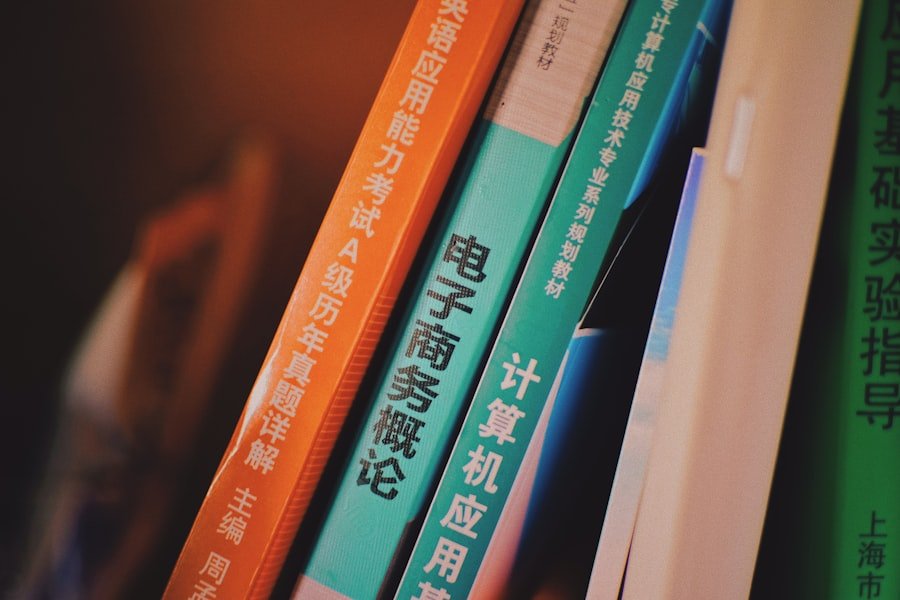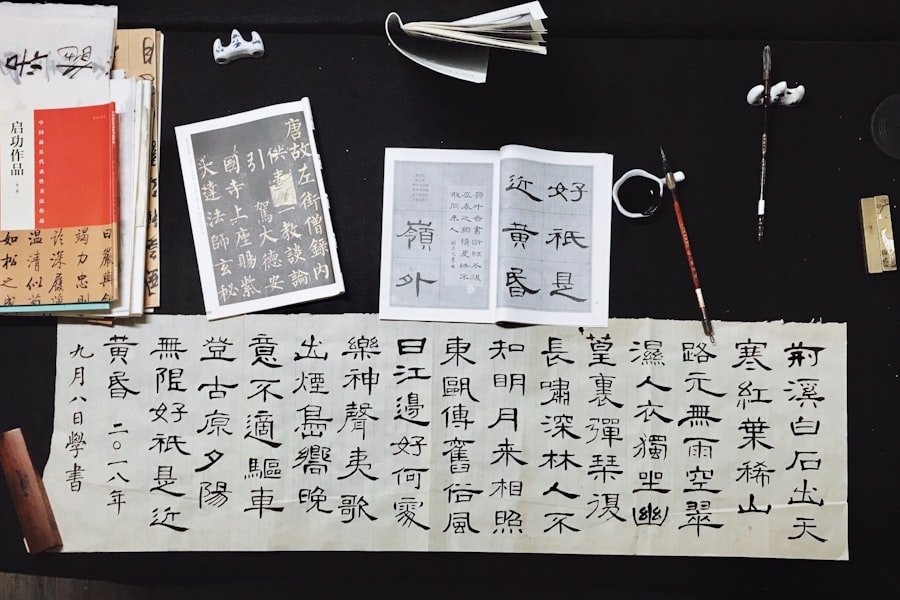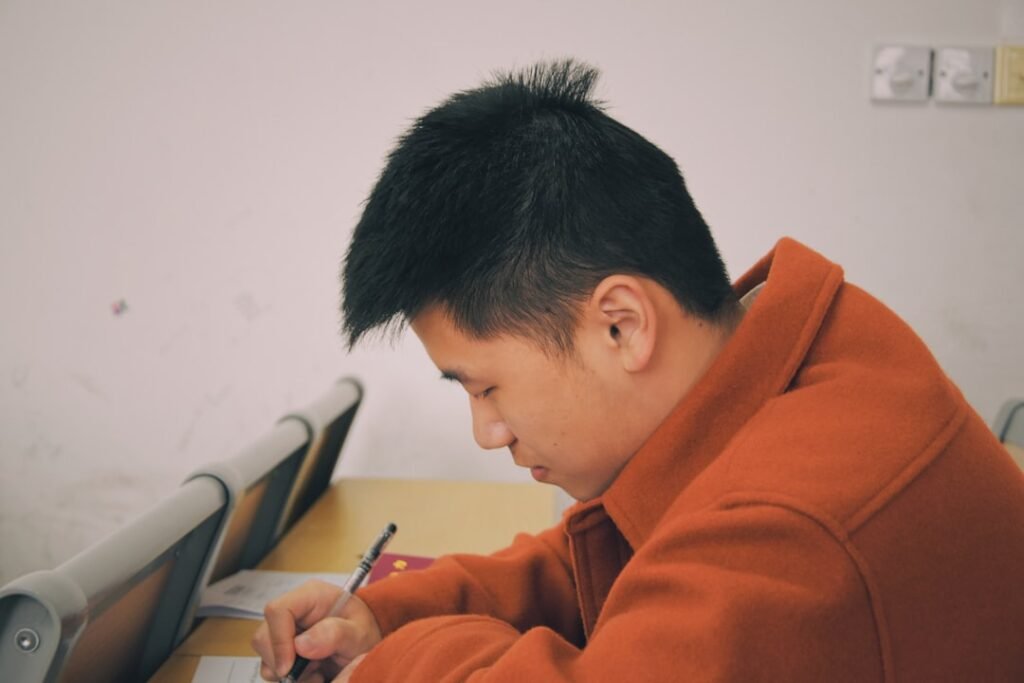In today’s globalised world, the ability to communicate in multiple languages is an invaluable asset, particularly for athletes who often find themselves competing on international stages. Integrating Chinese study into your training schedule can offer a multitude of benefits that extend beyond mere linguistic proficiency. Firstly, learning Chinese can enhance cognitive abilities, improving memory and problem-solving skills, which are crucial for athletes who must strategise and adapt quickly during competitions.
The mental discipline required to master a language can also translate into improved focus and resilience in sports, fostering a mindset that is essential for peak performance. Moreover, as China continues to rise as a significant player in the global sports arena, understanding the language can open doors to new opportunities. Athletes who can communicate in Chinese may find it easier to connect with coaches, sponsors, and fans in the region.
This cultural bridge can lead to enhanced collaboration and networking opportunities, which are vital for career advancement. Additionally, engaging with Chinese culture through language can provide athletes with a deeper appreciation of their sport’s global context, enriching their overall experience and perspective. Spaces are filling up fast! Register for Chinese classes at the LC Chinese School in Oslo today.
Table of Contents
ToggleSummary
- Integrating Chinese study into your training schedule can enhance cognitive function, improve focus, and provide a mental break from physical training.
- Setting realistic goals for Chinese study alongside athletic training involves considering your current language level, available study time, and the specific language skills you want to improve.
- Finding the right resources for learning Chinese in Oslo may include language schools, private tutors, online courses, or language exchange meetups.
- Creating a balanced schedule for training and Chinese study requires prioritising and time management to ensure both areas receive adequate attention.
- Incorporating Chinese language practice into daily routines can be achieved through activities such as listening to Chinese podcasts during workouts or reviewing vocabulary during rest periods.
Setting Realistic Goals for Chinese Study alongside Athletic Training
When balancing the demands of athletic training with the pursuit of language learning, it is crucial to set realistic and achievable goals. Athletes often have rigorous training schedules that leave little room for additional commitments. Therefore, it is essential to assess your current language proficiency and determine what you hope to achieve within a specific timeframe.
For instance, setting a goal to learn basic conversational phrases within three months can be more manageable than aiming for fluency in the same period. This approach allows for gradual progress while ensuring that language study does not interfere with athletic performance. Additionally, breaking down larger goals into smaller, more manageable tasks can help maintain motivation and track progress effectively.
For example, dedicating just 15-30 minutes a day to vocabulary practice or listening exercises can yield significant results over time without overwhelming your training schedule. By aligning your language learning objectives with your athletic aspirations, you can create a harmonious balance that fosters growth in both areas.
Finding the Right Resources for Learning Chinese in Oslo

Oslo offers a variety of resources for those interested in learning Chinese, making it an ideal location for athletes seeking to integrate language study into their training routines. One of the most prominent institutions is the LC Chinese School, which provides tailored courses designed to meet the needs of learners at all levels. The school’s experienced instructors employ engaging teaching methods that focus on practical communication skills, ensuring that students can apply what they learn in real-life situations.
In addition to formal classes, there are numerous online platforms and community groups dedicated to Chinese language learning. These resources often include interactive exercises, video tutorials, and forums where learners can connect with one another. By exploring these options, athletes can supplement their classroom learning with additional practice and exposure to the language outside of formal settings.
This multifaceted approach not only enhances understanding but also fosters a sense of community among learners in Oslo.
Creating a Balanced Schedule for Training and Chinese Study
Crafting a balanced schedule that accommodates both athletic training and Chinese study requires careful planning and prioritisation. Athletes should begin by assessing their training commitments and identifying windows of time that can be dedicated to language learning. This might involve early morning sessions before training or short study breaks throughout the day.
By integrating language practice into existing routines, athletes can maximise their time without compromising their physical training. Moreover, it is essential to remain flexible and adaptable when creating this schedule. Life as an athlete can be unpredictable, with competitions and travel often disrupting regular routines.
Therefore, having a dynamic approach to scheduling allows for adjustments as needed while still maintaining a commitment to language learning. By treating language study as an integral part of their overall training regimen, athletes can ensure consistent progress without feeling overwhelmed.
Incorporating Chinese Language Practice into Daily Routines
Incorporating Chinese language practice into daily routines is an effective way to reinforce learning without requiring significant time investment. Simple strategies such as labelling household items with their Chinese names or listening to Chinese music during workouts can create an immersive environment that promotes language retention. Additionally, athletes can utilise downtime during training sessions or travel to engage in quick vocabulary drills or listening exercises.
Another practical approach is to integrate language learning into existing activities. For instance, while preparing meals, athletes can practice cooking-related vocabulary or watch Chinese cooking shows with subtitles. This not only makes learning enjoyable but also contextualises the language in everyday scenarios, enhancing comprehension and recall.
By embedding language practice into daily life, athletes can create a seamless blend of training and study that reinforces both disciplines.
Utilizing Language Learning Apps and Online Resources

In the digital age, language learning apps and online resources have revolutionised the way individuals approach acquiring new languages. For athletes in Oslo looking to learn Chinese, these tools offer flexibility and accessibility that traditional classroom settings may not provide. Popular apps such as Duolingo, HelloChinese, and Memrise offer interactive lessons that cater to various learning styles, making it easier for busy athletes to fit language study into their schedules.
Furthermore, online platforms often feature gamified elements that make learning engaging and fun. Athletes can track their progress through daily challenges and quizzes while competing against friends or other learners worldwide. This competitive aspect can serve as motivation to stay consistent with language practice amidst demanding training regimens.
By leveraging technology, athletes can enhance their Chinese language skills efficiently and effectively.
Seeking Out Language Exchange Partners in Oslo
Engaging with native speakers is one of the most effective ways to improve language proficiency, and seeking out language exchange partners in Oslo can provide invaluable practice opportunities for athletes learning Chinese. Language exchange involves pairing up with someone who speaks Chinese and is interested in learning your native language. This reciprocal arrangement allows both parties to benefit from each other’s knowledge while fostering cultural exchange.
Oslo boasts a vibrant international community where finding a language exchange partner is relatively easy. Local universities, cultural centres, and social media platforms often host events or groups dedicated to language exchange. By participating in these gatherings, athletes can practice speaking in a relaxed environment while making new friends and connections within the community.
This immersive experience not only enhances language skills but also enriches cultural understanding—an essential aspect of being a well-rounded athlete.
Planning for Chinese Study During Travel and Competition
Traveling for competitions presents unique challenges when it comes to maintaining consistency in language study. However, with proper planning, athletes can continue their Chinese learning journey even while on the road. Before embarking on trips, athletes should consider packing portable study materials such as flashcards or downloading relevant apps on their devices for easy access during downtime.
Additionally, incorporating language practice into travel experiences can make learning more enjoyable and relevant. Athletes can set goals such as ordering food in Chinese at local restaurants or engaging in conversations with fellow competitors from China. These real-world applications not only reinforce language skills but also create memorable experiences that enhance cultural appreciation.
By viewing travel as an opportunity for both athletic growth and language immersion, athletes can maximise their time away from home.
Overcoming Challenges and Maintaining Consistency in Language Learning
Despite the best intentions, maintaining consistency in language learning can be challenging for athletes juggling multiple commitments. Factors such as fatigue from training or travel disruptions may lead to lapses in study routines. To overcome these obstacles, it is essential to cultivate a mindset of resilience and adaptability.
Recognising that progress may not always be linear allows athletes to approach setbacks with patience rather than frustration. Establishing a support system can also play a crucial role in maintaining motivation and accountability. Whether through study groups or partnerships with fellow learners at the LC Chinese School in Oslo, sharing experiences and challenges can foster camaraderie and encouragement.
Additionally, celebrating small victories along the way—such as mastering a new phrase or successfully conversing with a native speaker—can provide the motivation needed to persevere through difficult periods.
Tracking Progress and Celebrating Milestones in Chinese Study
Tracking progress is an essential component of any successful learning journey, including studying Chinese alongside athletic training. Athletes should consider keeping a journal or using digital tools to document their achievements over time. This could include noting new vocabulary learned, conversations held in Chinese, or even reflections on cultural insights gained through language study.
Celebrating milestones is equally important as it reinforces motivation and commitment to continued learning. Whether it’s treating oneself after completing a course at the LC Chinese School or sharing accomplishments with friends and family, recognising these achievements fosters a positive mindset towards language learning. By acknowledging progress—no matter how small—athletes can maintain enthusiasm for both their sport and their studies.
Embracing the Cultural and Mental Benefits of Learning Chinese as an Athlete in Oslo
The journey of learning Chinese extends far beyond linguistic proficiency; it encompasses cultural enrichment and mental growth that are particularly beneficial for athletes in Oslo. Engaging with the nuances of Chinese culture through its language fosters greater empathy and understanding of diverse perspectives—qualities that are invaluable both on and off the field. This cultural immersion enhances an athlete’s ability to connect with teammates from different backgrounds and navigate international competitions with ease.
Moreover, the mental benefits of learning a complex language like Chinese cannot be overstated. The cognitive challenges involved in mastering tones, characters, and grammar structures sharpen critical thinking skills and enhance overall mental agility—traits that are essential for success in sports. As athletes embrace these cultural and mental dimensions of learning Chinese at institutions like the LC Chinese School in Oslo, they not only enrich their personal lives but also elevate their performance on the global stage.
In conclusion, integrating Chinese study into an athlete’s training schedule offers numerous benefits that extend beyond mere communication skills. By setting realistic goals, utilising available resources like the LC Chinese School in Oslo, creating balanced schedules, incorporating daily practice, leveraging technology, seeking out exchange partners, planning during travel, overcoming challenges, tracking progress, and embracing cultural insights—athletes can cultivate a rewarding bilingual journey that complements their athletic pursuits beautifully.







